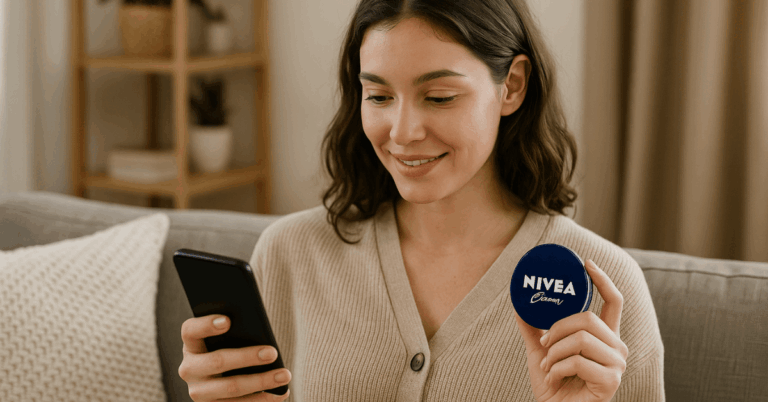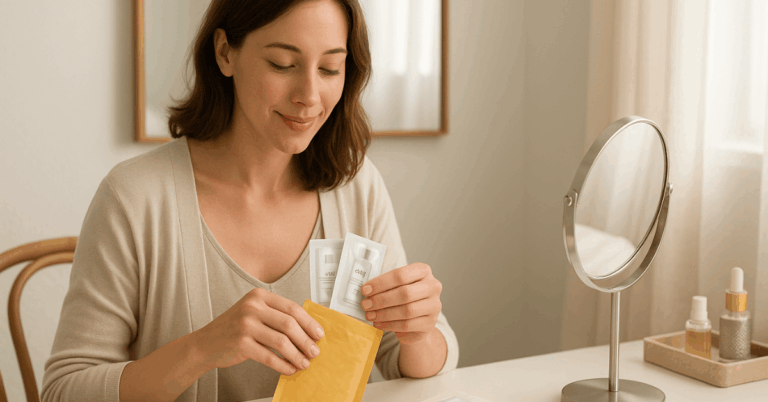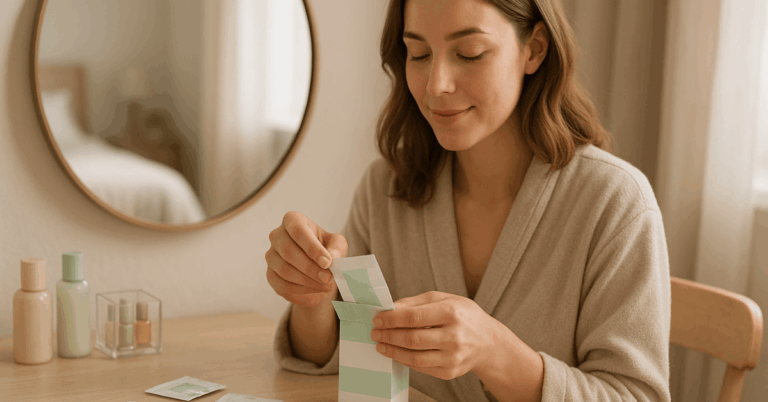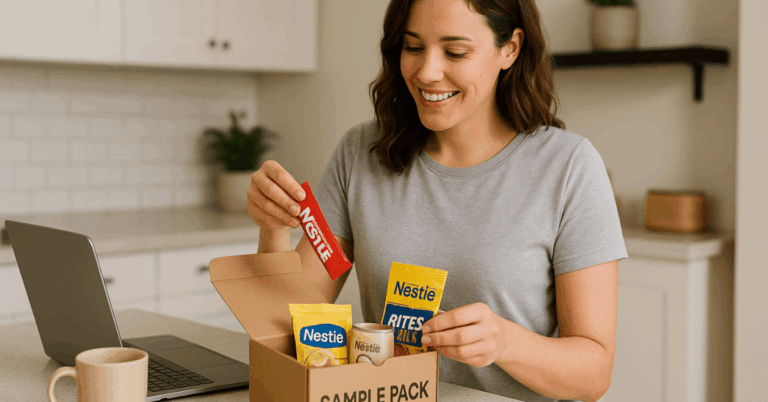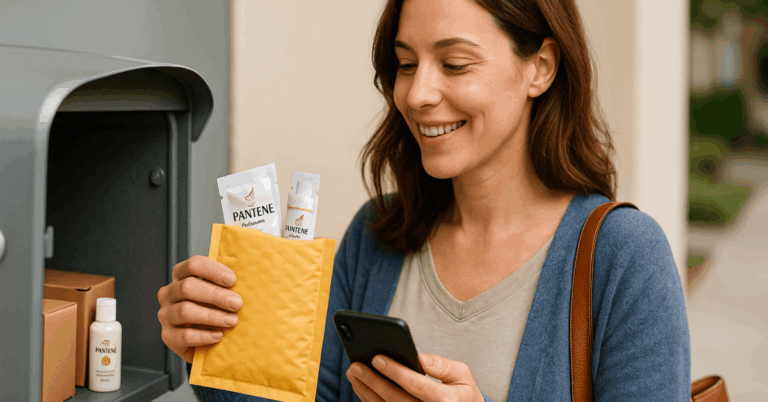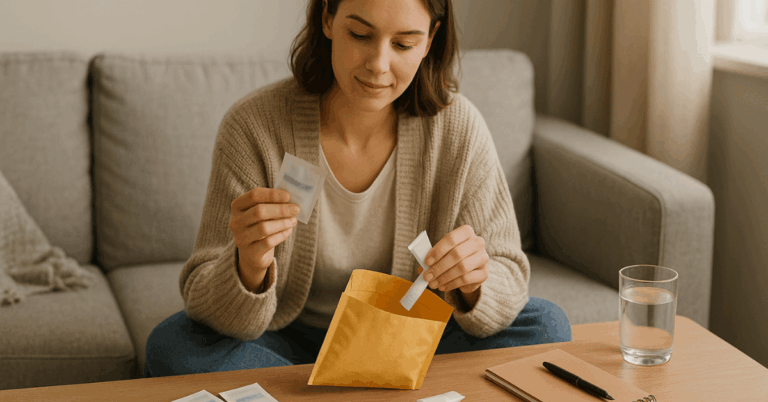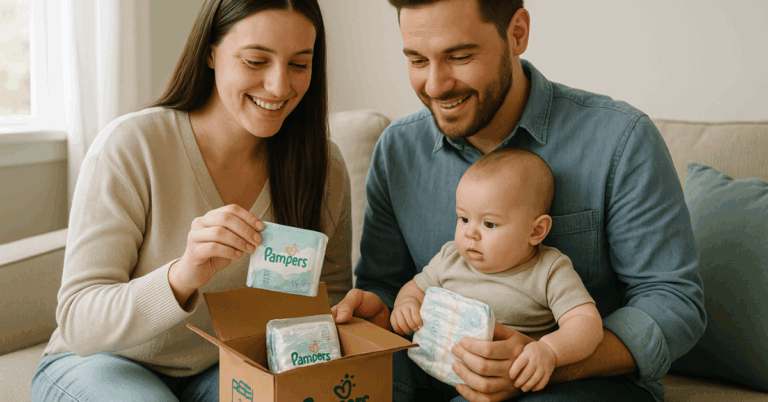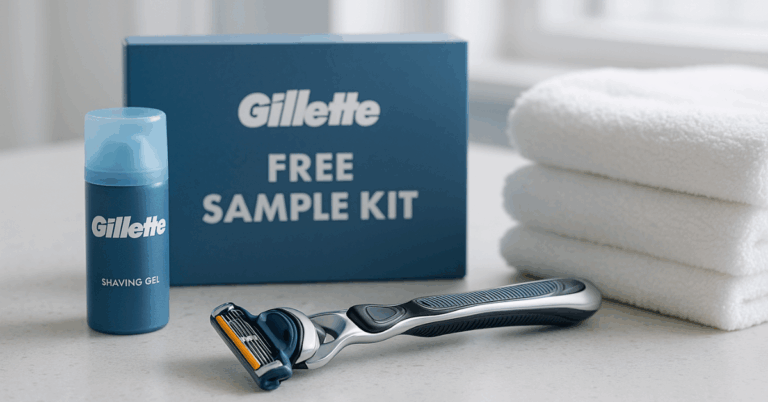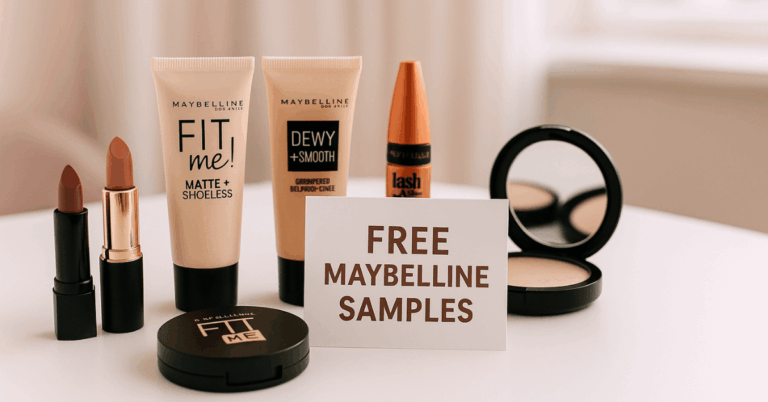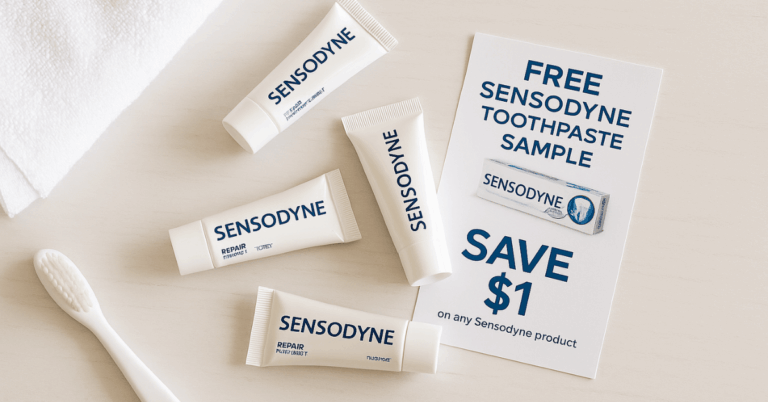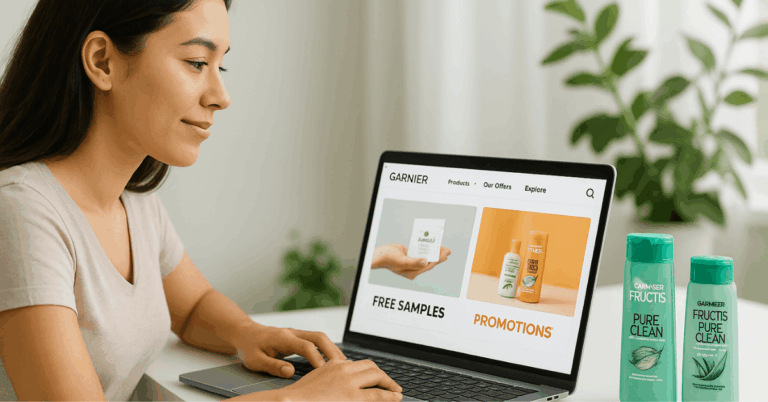Across many countries, access to menstrual products still varies widely, and targeted sampling helps bridge gaps for people managing monthly costs.
For Requesting Free Always Feminine Care Samples, this guide shows safe, legitimate routes to try pads, liners, and period underwear without payment or risk.
In practical terms, sampling programs introduce product fit and comfort while supporting menstrual hygiene programs and community education.
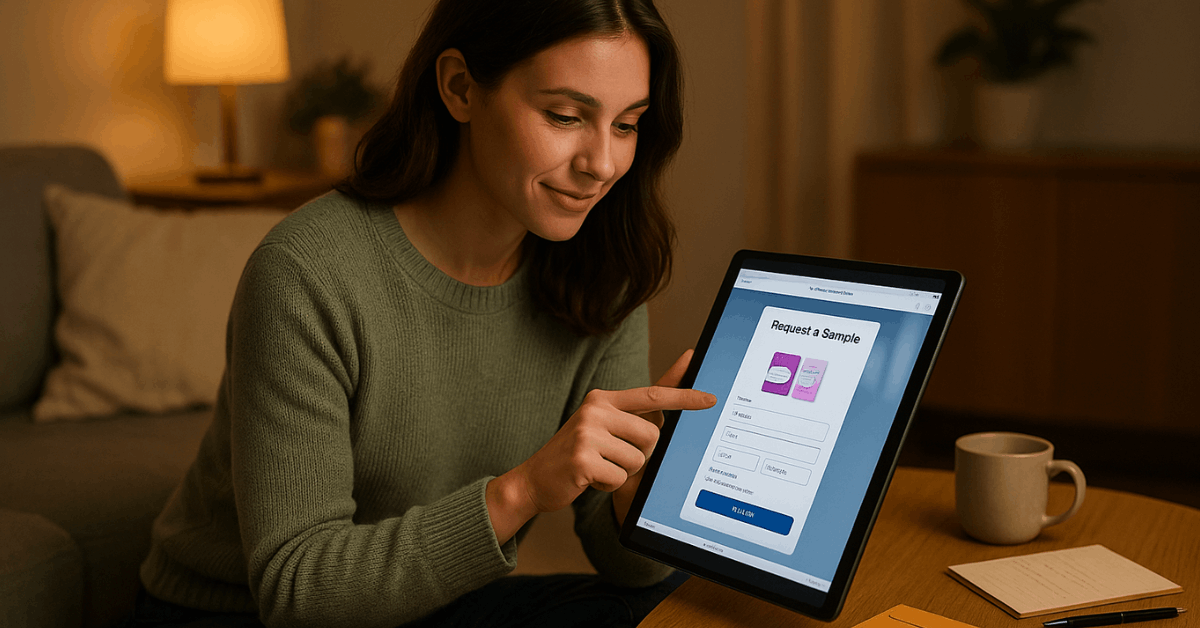
What Always Feminine Care Offers
Always markets pads, liners, and period underwear designed for different flows, sizes, and day, night use.
Brand materials describe a 3X Protection System on select pads featuring RapidDRY, LeakGUARD, and OdorLOCK to support up to 100% leak-free comfort, alongside size guidance by flow and body size.
In the United States, menstrual pads and tampons are regulated as medical devices, and manufacturers follow FDA guidance covering classification and 510(k) submissions where applicable.
Why Brands Run Free Sample Campaigns
Sampling allows consumers to test comfort, coverage, and skin feel before committing to full packs, which reduces adoption friction and improves purchase confidence.
For brands, well-run campaigns generate structured feedback used to refine absorbency tiers, materials, and packaging.
Community alignment also matters. Corporate initiatives such as Always Keeping Girls in School partner with NGOs to distribute products and deliver puberty and confidence education, linking brand outreach to measurable attendance and dignity outcomes.
Where to Find Legitimate Always Free Samples
Clear signals identify trustworthy channels and help avoid spammy forms or requests for payment. The options below focus on official brand pages, vetted partner platforms, and credible community efforts.
- Official brand pages: Product or campaign microsites periodically host an Always free sample request form for eligible regions; availability changes based on stock and timing.
- Partner sampling platforms: PINCHme and Sampler distribute limited kits for major CPG brands in exchange for feedback; accounts are free, and offers rotate by market.
- Public awareness events: Menstrual Hygiene Day (May 28) frequently coincides with giveaways and education drives coordinated by local nonprofits and health agencies.
- Humanitarian or development programs: NGO partners occasionally include pads in dignity kits or school-based distributions where period poverty is documented.
- Government initiatives: Some regions fund product access directly; Catalonia’s pharmacy program for reusable products illustrates one model many readers can watch for locally.
Eligibility and Common Limits
Campaign rules vary by country, product, and stock. Typical limits include one kit per household, age verification where required, and residency checks to manage logistics.
Data collection tends to cover shipping details and a brief profile to match offers; legitimate forms never request card numbers or payments for shipping.
Global policy attention on period poverty continues to expand access through public budgets and school programs, which increases legitimate opportunities while also attracting copycat scams. Staying within brand channels or recognized partner sampling platforms keeps requests aligned with privacy and safety expectations.
How to Apply Online Without Mistakes
Short, accurate forms lead to faster approvals and fewer delivery issues. Treat each form as a one-time request and avoid duplicates.
- Visit an official brand page or verified partner hub listing an active Always free sample request for your region; review terms before entering data.
- Enter name, full address, and email exactly as used on postal deliveries; mismatches create returns or undeliverables.
- Confirm period product eligibility rules such as age, country, and one-per-household limits stated on the page.
- Submit and save the confirmation screen; optional surveys can improve match rates for future drops.
- Monitor inbox filters and promotions tabs for shipping notices to track the sample delivery timeline once a label prints.
Delivery Timelines and What to Expect
Most programs ship in batches, so delivery may take several weeks depending on stock, route, and customs. Many mailers arrive in discreet shipping packaging without overt product references to protect privacy in shared mailrooms or family homes.
Regional carriers and postal services handle last-mile delivery; delays occur when weather or peak seasons strain networks.
For time-boxed events aligned to Menstrual Hygiene Day or school campaigns, fulfillment often spikes, extending the sample delivery timeline by a week or two.
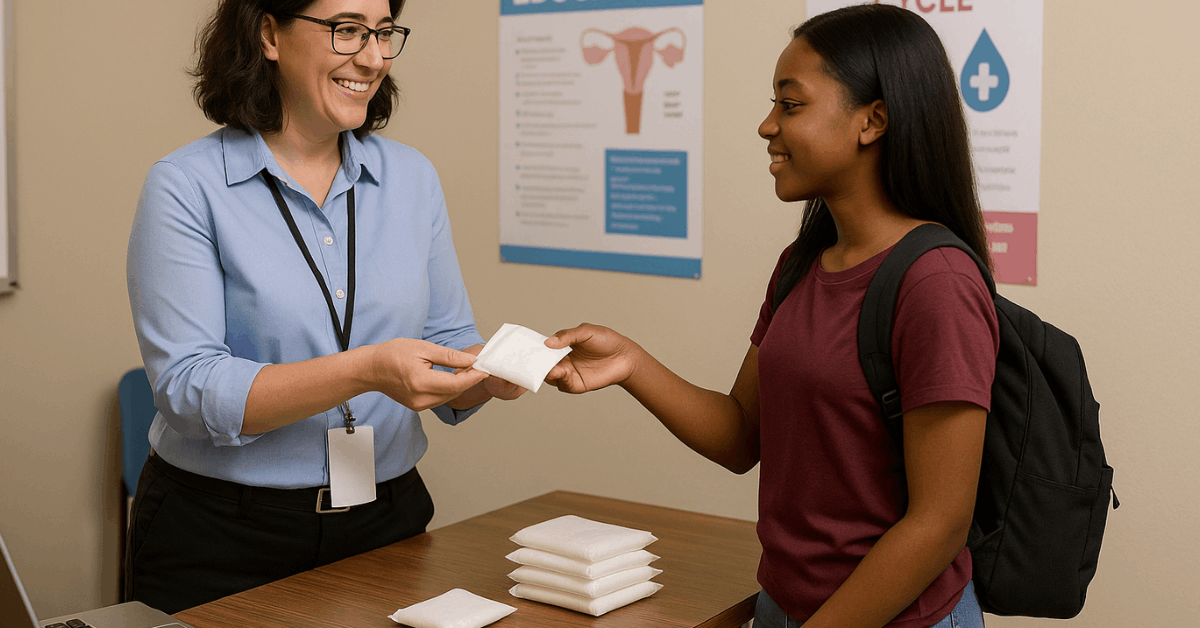
Offline Access Points for Free Feminine Care
Local institutions frequently distribute products directly, which helps those without stable internet or shipping addresses. These sources also connect recipients to broader health and education services.
- Schools and universities: Student health offices and counselors manage periodic distributions that reduce absenteeism during menstruation.
- Public clinics and community health workers: Women’s health programs integrate pads into maternal and adolescent health visits.
- Faith-based and neighborhood charities: Donation drives bundle pads into hygiene kits during seasonal campaigns.
- Government pilots: Municipal or regional schemes may provide vouchers or free products through pharmacies, mirroring Catalonia’s reusable model.
Safety and Authenticity Checks
Scam pages commonly mimic brand logos while asking for shipping fees or unnecessary identity data. Safer behavior revolves around domain checks, encryption, and payment red flags.
Verified brand sites use HTTPS and recognizable domains; partner platforms publish clear privacy policies and never gate samples behind surveys that demand financial information.
PINCHme’s model, for instance, requests product feedback rather than payments, reinforcing a legitimate value exchange. Maintaining this posture helps avoid sample scams across social media promotions and message-forwarding chains.
Benefits and Community Impact
Free kits reduce immediate costs while letting recipients identify size, absorbency, and form factor that match daily routines, athletic activities, and sleep.
On the community side, school attendance improves when period products are available, and stigma drops as campaigns normalize conversations through evidence-based education.
UN agencies and national public-health bodies now frame menstrual health as a rights and equity priority, which encourages durable policy support beyond one-off donations.
Alternatives and Government Programs
Choice matters, and regional availability will differ.
Reputable brands such as Kotex or Stayfree periodically run sampling efforts; public-health departments sometimes distribute pads during outreach or disaster response; and reusable options like menstrual cups or cloth pads can lower lifetime costs where washing facilities make them practical.
Government-funded programs continue to expand, including those distributing reusable kits through pharmacies and clinics, which complements short-term sample drops with stable access pathways.
Product Knowledge: Materials and Safety Basics
Ingredient transparency helps recipients evaluate fit and skin compatibility. Always product pages highlight features such as RapidDRY top layers, LeakGUARD cores, and OdorLOCK odor control, while published size guides align absorbency to flow and body size.
Readers comparing Always pads ingredients against sensitivities should consult official product pages and verify any fragrance-free or unscented descriptors before ordering.
FDA guidance confirms menstrual tampons and pads fall under medical-device regulations, which shape submissions and labeling in the U.S. market; outside the U.S., authorities apply local categories, and some regulators treat sanitary napkins as medical devices when health claims are made.
Quick Tips to Improve Success Rates
Consistent monitoring of reputable sources beats chasing random links shared in comments. Newsletter signup on brand pages, PINCHme account creation, and periodic checks of Sampler campaigns keep profiles active for new drops.
Participation in credible menstrual hygiene programs at schools or clinics also surfaces local opportunities tied to education sessions or health fairs.
Maintaining accurate addresses and avoiding duplicate submissions reduces cancellations while keeping profiles in good standing for future allocations.
Conclusion
For everyday access on a budget, stick to official brand pages and vetted sampling partners. Submit a single accurate request, watch inbox filters for confirmations, and ignore any form asking for payment.
Pair online drops with offline options at schools, clinics, and community programs to widen chances. After a successful trial, choose the fit that works, then save future costs through targeted deals rather than guesswork.
